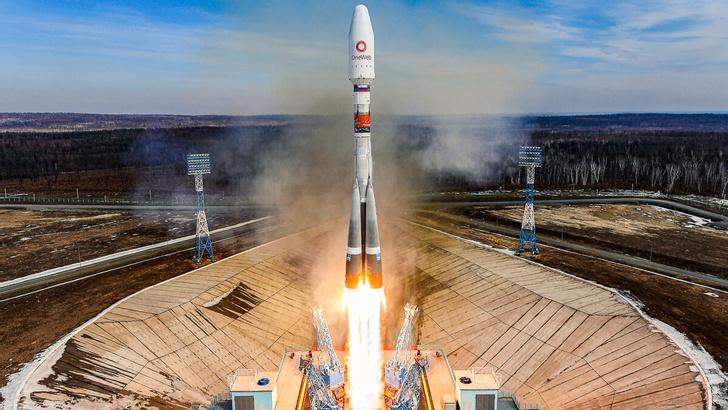South Korean conglomerate Hanwha Systems has decided there is enough room in satellite broadband for at least two players, with its decision to invest $300 million in OneWeb.
OneWeb now has 254 satellites in low-Earth orbit out of a planned 648, fewer than the 1,500 so far launched by Starlink, the competing project from Elon Musk's SpaceX company.
It also has a different model: selling network to operators in hard to-cover regions, rather than directly to consumers like Starlink.

Playing catch-up: OneWeb now has 254 satellites in low-Earth orbit, out of a planned 648. (Source: Roscosmos, Space-Center-Vostochny and TsENKi)
The Seoul-based company will acquire an 8.8% stake and a board seat. The largest stake remains India's Bharti Airtel (which after a $1 billion further investment will have a 35% stake), with others in the hands of the UK government (at just under a 20% stake), Japan's SoftBank Group and France's Eutelsat.
There is also a small stake from US-based Hughes Network Systems, which is supplying parts for OneWeb's ground segment.
The UK's golden share gives it control over who else can invest in the company. The investment is due to complete in the first half of 2022, following regulatory approvals.
Back from the brink
With London under pressure to justify an unusual $500 million corporate bailout at the start of the global pandemic, the Department for Business, Energy and Industrial Strategy was keen to tweet the first generation "is now fully funded," which it argued "puts the UK at the forefront of the small satellite market."
The injection of capital, though, which takes OneWeb's equity value to $2.7 billion, helps fund the second generation of the company's satellites. Seeing as OneWeb went bankrupt at the beginning of the pandemic, the new investment continues a turnaround journey back from the brink.
Hanwha is one of South Korea's largest conglomerates. Other of its recent investments have included another satellite startup, antenna maker Kymeta Corp, which has been backed by Bill Gates. Its defense systems division, Hanwha Systems, also acquired Phasor Solutions, a UK startup and fellow antenna maker.
As OneWeb puts it in a tweet, Hanwha will bring it both improved antenna technologies and links to South Korea's defense contractors.
Similarly, the contractors may well be interested in the low-Earth orbit satellite technologies and the significant advantages they offer in speed, connectivity and latency over traditional satellites. Hanwha plans to build and deploy a constellation of 2,000 low-Earth orbit satellites by 2030.
Space jammed
The 8.8% stake suggests Oneweb has a current market capitalization of $3.4 billion, which is a substantial increase on recent funding rounds.
This is consistent with a ballooning of the commercial space market generally, which Morgan Stanley estimates is set to grow from $350 billion in 2016 to $1 trillion by 2040.
Want to know more about satellite? Check out our dedicated satellite channel here on Light Reading.
OneWeb aims to switch on a limited commercial service in the northern hemisphere this year north of the 50th parallel, and a global service by the end of next year.
Another launch of 34 OneWeb satellites is planned this month from Baikonur Cosmodrome in Kazakhstan. Its latest launch before that took place on July 1, aboard a Soyuz 2.1b rocket.
